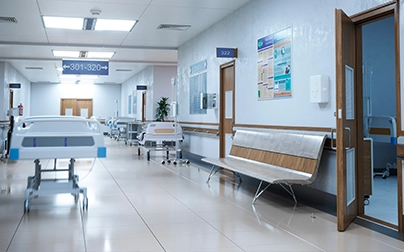Managing the volume of health risk assessment (HRA) outreach necessary to understand member populations is increasingly challenging. As others rely on technology solutions alone, we sat down with Carenet Health’s Chief Client Officer Vikie Spulak to get her take on why a human-anchored approach to HRAs is a more effective way to gather this vital information.
HRAs provide a crucial view into member and population health. Why not count on today’s advanced technologies to collect the information?
Using digital tools can still be a smart way to gather needed information. And in fact, we support HRA survey administration and capture via our clients’ systems or our own NCQA- and HITRUST-certified technology. But our experience implementing hundreds of HRA programs through the years has shown that passive digital methods alone do not significantly increase HRA completion rates.
That’s why the cornerstone of our strategy is our highly trained engagement specialists, or in some cases, registered nurses.
The fact is, certain groups and individuals simply respond better to one-on-one interaction than more impersonal tactics such as automated phone calls or emails. And our teams are trained to effectively engage, educate and activate members throughout the HRA experience. By building rapport and trust, we foster accountability. And that drives members to take control of their care—which ultimately improves outcomes and lowers costs for members and health plans.
What makes this more personal approach to HRAs work so well?
Our engagement specialists do so much more than ask questions. These are highly skilled professionals who can take the time to explain the impact of lifestyle choices and the importance of preventive care. Based on a member’s answers, they can communicate the availability of resources, such as virtual care and nurse advice lines, tobacco cessation programs and health coaching. They utilize listening skills and conversational probing techniques to uncover potentially adverse health conditions or gaps in care. They’re also trained in cultural diversity, senior sensitivity and low health literacy to help them really connect, and dispel myths and misinformation. No matter the population—seniors, adults, Medicaid—these interactions are designed to not only report on a health status but truly uncover health challenges that we can impact now before they affect the quality of life later.
Any last words of advice for health plans?
As consumer choice and decision-making responsibility increases in healthcare, forging connections with members is no longer a nice-to-have—it’s a must-have. Through a personalized, proactive HRA outreach strategy, you not only gather valuable information about the populations you serve but also elevate member knowledge and satisfaction. It really makes a difference, and our clients have seen up to 60 percent HRA completion rates.
Plus, we’re so confident in our methods that we’re willing to get paid based on performance.
Want to talk about how our approach can help you boost your HRA strategy? Contact us today.


